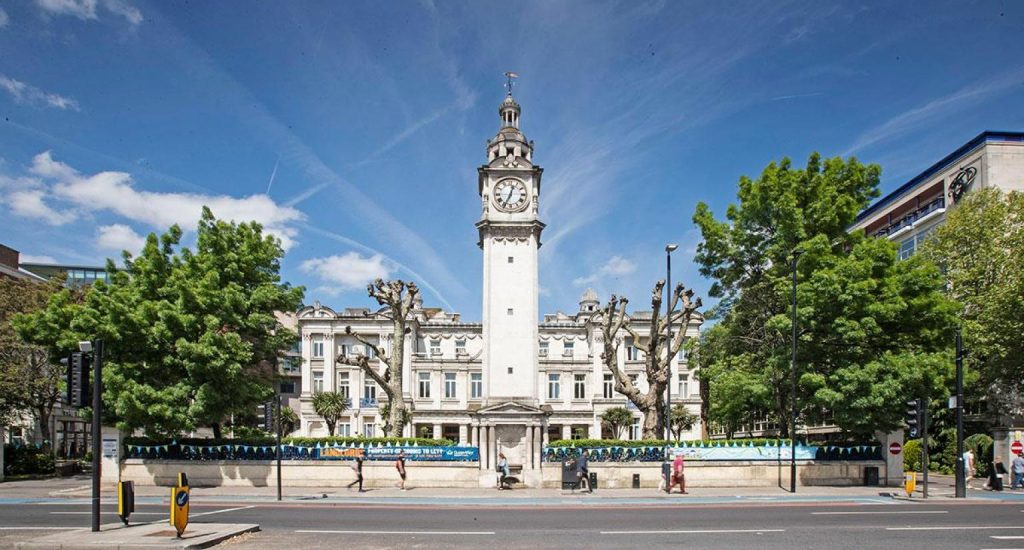
During this course, you’ll explore the development, possibilities and limitations of international policy-making, including cooperation issues, the impact of international law and norms, and the role of international organisations and non-state stakeholders in policy-making.
After successfully completing the course, you’ll be able to:
Share your details in order to receive information about this high quality online masters course.
Format: part-time and online (distance learning)
Tuition fees: £13,295 (MSc); £8,850 (PGDip); £4,450 (PGCert).
Course duration: two years (MSc); 15 months (PGDip); one year (PGCert)
Annual start dates: May, September
Next start date: 18th September 2023
Application deadline: 15th September 2023
Time commitment: approximately 20 hours per week
The course combines the specific theories, concepts and cases of public policy with international relations studies to ensure you gain a firm grasp of the decision-making and implementation processes involved in international public policy.
This module is designed to provide you with a command of key concepts and theoretical traditions in international relations and an understanding of their relevance to contemporary themes in world politics.
We will evaluate political developments and statements and analyse critical themes in world politics. Through a close reading of advanced theoretical texts, you will expand your conceptual and theoretical knowledge and begin to think critically about competing interpretations of events, and longer term developments in international relations.
Online discussions will encourage you to compare and critically evaluate theoretical knowledge and to express your arguments effectively.
This module will provide a structured introduction to key issues and concepts in policy analysis. It will give you a solid grounding in theories of the policy-making process while enabling you to apply those insights to practical case-studies of policy formulation and implementation in the real world.
The module will also provide you with background on the key traditions and approaches to public administration and policy-making in countries around the world, both developing and developed states.
This module aims to provide a critical overview of the theory and practice of two of the crucial ‘end’ stages of the policy process: delivery and evaluation. It will examine how governments and public agencies around the world have sought to upgrade their delivery and evaluation capacity in recent decades.
The module will explore the development of theoretical and empirical academic literature and provide opportunities for students to apply this material to selected case studies relevant to the group. Practitioners will be encouraged to reflect on their practices and experiences.
In this module, we will consider the principal forms in which US foreign policy has been practised and interpreted since the foundation of the Republic. Amongst these are American Exceptionalism and Anti-Americanism, ‘spheres of influence’, liberal interventionism and protectionist isolationism, Cold War containment, the ‘War on Terror’ following 9/11, and the strains on uni-polarity in the early 21st century.
Case studies linked to these themes will allow us to consider the role of Native Americans and immigration, the war of 1898, gunboat diplomacy in the Caribbean, the ideas of Woodrow Wilson, the Vietnam War, the consequences of the 9/11 attacks, and the challenges posed by China.
This module provides you with a detailed examination and critique of theories of globalisation, an assessment of contemporary globalising processes, and how these particularly influence the developing world.
We will examine the analysis of contemporary manifestations of ‘globalisation’, including neo-liberalism, US hegemony and contemporary imperialism, capital flows, global commodity chains, state-market relations, patterns of global inequality, international institutions, and questions of cultural homogenisation/imperialism.
The module also looks at the ways in which ‘globalisation’ is resisted, focusing on the rise of transnational social movements and NGOs, and the politics of ‘anti-globalisation’, and how this relates to an ostensibly ‘post-development’ era.
In addressing these issues, the module concludes by asking the most important question: how do we think of ‘development’ in an era of ‘globalisation’, US hegemony, neo-liberalism and imperialism?
The title and subject of your dissertation will be agreed by your assigned tutor. A dissertation is only required if you study the full masters programme.
Benefits of learning online with us

• No visas or moving costs
• Access course from anywhere in the world
• Spend approx. 20-25 hours studying each week
• All course materials are available on demand
• Revise on the days and times that suit you best
• Course modules broken down into weekly
segments
• Fit studies around work, family and social life
• Support with non-academic queries from a
student adviser team

This MSc will give you knowledge and transferrable skills that you can use in a variety of international public policy settings. The programme will help you understand how agenda setting and policy making works, and how you move from agenda setting to decision-making and policy implementation.
You will learn about what instruments are available to you in a policy-making environment and how you can design, develop, implement and evaluate policy.
You will gain the ability to listen to or read complicated material and pick out key points quickly, an important skill in most jobs. You will also learn how to debate current issues with your peers and communicate your ideas effectively, both verbally and in writing.
The theoretical understanding and transferrable skills you develop on the MSc can not only help you perform better within your current role, but also make you very attractive to a range of prospective employers.
As an online student, you’ll have access to QM Careers and Enterprise for up to two years after you graduate. The service offers information and guidance on a range of topics, from choosing a career to succeeding at interview and starting your own business.
Graduates of our online MSc in International Public Policy have gone on to work in roles such as: Associate, African Import-Export Bank,Compliance Officer-Shanghai Commercial Bank-Enterprise Governance Contractor, Transport for New South Wales-Police Constable, UK Metropolitan Police Service- Policy Advisor, UK Ministry of Housing, Communities and Local Government.

Benefits of learning online with us
The usual entry requirement for the International Public Policy MSc is for a 2.1 honours degree or international equivalent in a relevant subject, such as politics, international relations, history or economics.
However, if you have a 2nd class degree and at least three years’ relevant work experience, we may also consider your application.
If your first language is not English, you should also have one of the following:
The following tests are also being accepted for September 2023 entry:
If you’re unsure whether you’re eligible to apply, please get in touch with our course adviser team for advice.
Share your details in order to receive information about this high quality online masters course.

Fuel your ambition and achieve a big increase in your earning potential by studying one of our high quality flexible master programs developed by some of the top British Universities.
® London House Academy 2023 | Powered by diho.mx